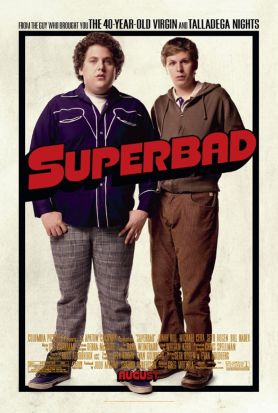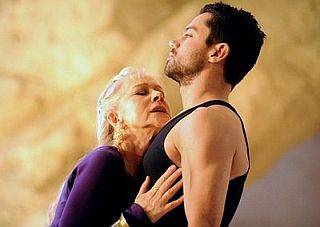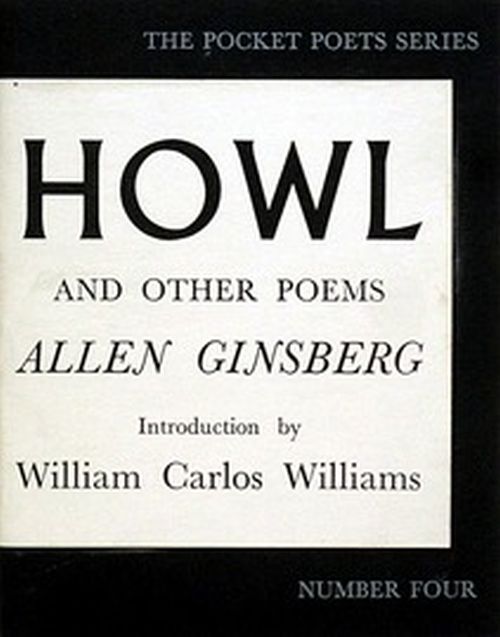Burn, Bernie, Burn
From The New CriterionThe lead of the New York Times’s story about financial troubles
at The Irish Times pays tribute to that paper as a “guide” to
Hibernians doubtless bewildered by “the economic and cultural booms of the last
decade.” Brian Lavery, the article’s author, could tell by the
“nonpartisan and unbiased approach” with which “The
Times pushed issues to the fore with a progressive, literate, pro-European
voice.” It’s a small example, I admit, but as perfect in its way as
you will find, of the way in which the subject of “bias” is
understood, not only at the New York Times but in most of the mainstream
media in the United States. Just as, in the European context, “nonpartisan
and unbiased” means practically the same in the eyes of Mr Lavery and the
New York Times as “progressive, literate, pro-European,” so
in the U.S., the same words imply the constellation of attitudes and opinions
that go under the name (when they must be named at all) of
“progressive.”
It is the settled ambition of the “progressive” forces in the
developed and English-speaking countries of the world to transcend what they
regard as the parochialism of national and local identities. That is one reason
why being “pro-European,” for example, is the same thing to both the
Timeses as being unbiased. National or ethnic or religious or patriotic
or other forms of feeling that do not aspire to the universal —
these are what is meant by “bias.” But to those
“progressives” who inhabit their airy, intellectual realm beyond all
such provincial and partisan loyalties, charges of bias simply cannot apply.
Conor Brady, editor of the Irish Times clearly sees his paper’s
mission in terms that resonate on 34th street. According to Mr
Lavery
Without The
Irish Times, even Ireland’s conservative mainstream, which often takes issue
with the paper’s liberal debates on gender relations, abortion and diversity,
would feel the loss of the way it “tries to hold a mirror up to Irish society,”
Mr. Brady said. “It opens a window onto the world outside this island.”
If you start from the assumption that conservative attitudes on “gender
relations, abortion and diversity” are simply the result of ignorance of
“the world outside this island” it follows that all your
“debates” will be liberal ones. “Bias,” like
conservatism itself, can only be committed by those who are not cosmopolitans
like Messrs. Brady and Lavery.
I only bring the matter up because it helps explain the emotional heat
generated whenever the subject of bias comes knocking at the gates of
America’s citadels of journalistic rectitude. The latest to invite the
pots of boiling oil on his head is Bernard Goldberg, a former reporter for CBS
who went off the reservation in 1996 with an article on the editorial page of
the Wall Street Journal which took to task Eric Engberg, a CBS colleague,
for a sneeringly negative and unbalanced report on Steve Forbes’s
“flat tax” proposal during that year’s presidential primaries. According to Goldberg’s new book [Bias: A CBS Insider Exposes how the Media Distort the News (Regnery, 232 pp., $27.95).] previous, internal protests at the network’s biases had gone unheeded by CBS executives, and he was left with no recourse but to take his complaints public. As a result he was effectively banned by Dan Rather from further reporting for the “CBS Evening News” and frozen out by colleagues and CBS executives. What it was, exactly, that he continued working on at the network for the next five years is not made entirely clear in the book, but he was finally allowed to take early retirement last year when he turned 55. Now he is free to air his grievances without restraint.
In writing his book, Goldberg was clever enough to confine his charges of
bias to the network news shows. He reaped his reward for that with Janet
Maslin’s review in the New York Times:
Even among those
who reject that premise [that network news personnel “tilt to the
left”], or some of the ad hominem bitterness on display here,
“Bias” should be taken seriously. Unlike Bill O’Reilly, whose best-sellers (like
“The No-Spin Zone”) trumpet a bullying brand of conservatism as they recycle
transcripts of television interviews, Mr. Goldberg has done real homework and
has written a real book. Whatever his conclusions, however shaky his
suppositions, he asks questions that are worth asking.
Unaccountably, she neglects to provide any examples of shaky suppositions to
justify this kind of damning with faint praise, but the fact that it is praise
at all doubtless owes something to the fact that the Times’s ox is
ungored by an attack on the network news. The nearest she gets to a substantive
criticism is the spectacular non sequitur of saying about his argument
against the foolish media hype in the late 1980s concerning the alleged threat
of heterosexual AIDS that it “is weakened by what he leaves unsaid: that
the condition of a person with AIDS is not improved by blaming the
victim.” What victim had he blamed? The only people blamed in his book are
the lazy reporters who accepted at face value the assurances of the AIDS
activists that the disease was as much a threat to heterosexuals, even children,
as it was to the high-risk categories of homosexuals engaged in anal intercourse
and intravenous drug users.
Chris Lehmann in the Washington Post “Book World” was less
generous to Goldberg than Janet Maslin:
Unfortunately,
Goldberg’s apparently justified grievance against his CBS superiors — most
particularly news anchor Dan Rather — supplies the template for his tour of the
network news industry. As a result, the honorable dissent that midwifed “Bias”
blurs almost immediately into a multifront crusade against high-profile media
personalities that is, in truth, no better reasoned and no more balanced than
the flat-tax report aired in 1996.
Once again, evidence of bad reasoning is rather thin on the ground. Lehmann
writes that:
In his first 40
pages, for example, Goldberg revisits the original flap over his Journal
op-ed to hammer out an unedifying portrait of stereotyped elite media
clannishness. The network news is like the Mafia, he argues — only “The Don in
this case is actually The Dan. Dan Rather. Capo di tutti news guys.” A few
sentences later, he floats this unlovely analogy: “If CBS News were a prison
instead of a journalistic enterprise . . . 100 percent of the vice presidents
would be Dan’s bitches.”
What he is objecting to here, of course, is not Goldberg’s reasoning
but his rhetoric, which is indeed rather overwrought and tasteless. He goes on
to claim that Goldberg is attacking “this nameless congeries of
‘elites,’” even though the book is full of names, including
that of Dan Rather which Lehmann himself has just quoted. He then tries with a
bit of sophism to discredit not an argument but a hypothetical analogy of
Goldberg’s by suggesting that Nebraska is really no more conservative than
New York. Just look at Bob Kerrey in the former and Michael Bloomberg in the
latter!
Like Miss Maslin, Lehmann is predictably exercised by Goldberg’s
apparent belief in the social pathologies engendered by working mothers, but his
evidence that this is not really the unreported story that Goldberg claims it is
— namely that such pathologies as violent crime, suicide and drug
addiction among teens are decreasing — even if true would be irrelevant.
Goldberg was writing about the fact that such evidence as there was to link the
one thing to the other had never been reported by television news, so that there
had never been a discussion of a subject which, even if it turned out to be as
Lehmann avers “not much of a story” (and the evidence for this is
weak), deserved to be discussed.
I am not against
“better day care,” and I have no problem with the evening news doing
stories about how that might be done [writes Goldberg]. The problem is that they
don’t let the other voices on. The ones who say that most toddlers are
better off with their own mothers than with day-care workers and that most
adolescent kids would do better if a parent were home after school instead of
being alone and “fending for themselves.”
In other words, his argument is not about day care versus home care. It is
about balance and fairness on the news. It is about a genuine diversity of
opinion.
This is just one of many occasions on which the more vehemently the
journalistic establishment insists that Goldberg is wrong the more obvious it is
to any fair-minded observer that he is right. If bias were really, as they say
it is, not a problem, they would not be so obviously threatened by someone who
says it is a problem. Particularly someone who says so not from the right but
from the liberal journalistic culture itself. Hence the appalling
disingenuousness of Bob Schieffer, who was quoted by Howard Kurtz of the
Washington Post as saying of Goldberg that “In the end, he seemed
to think his job was to report on CBS News instead of reporting for CBS News. .
.Bernie just seemed to be upset about everything. He was upset with the
world.” Nor did Eric Engberg, whose report on Steve Forbes six years ago
started the whole business, have the sense to keep his mouth shut, telling Kurtz
that Goldberg had committed an “act of treason”and that “he
didn’t have many friends in this organization because he was a selfish,
self-involved guy who was not a team player.”
There, no doubt, was another example of Engberg’s celebrated lack of
bias! But wouldn’t any network newsman similarly expect to have his
character-assessment of an avowed enemy taken at face value? How dare we
question his motives? The fact that Engberg thinks himself qualified to offer
such an observation on such a subject itself tells us a lot about the justice of
Goldberg’s charge against him. But if Schieffer, another CBS employee, and
Engberg have some cause of grievance against Goldberg, what are we to make of
the vitriol of Tom Shales — not, interestingly, in the Washington
Post, where he is the resident TV critic but in the relative obscurity of
the web-site emonline?
Disgruntled
has-beens everywhere have a new hero and role model: Bernard Goldberg, the
one-time CBS News correspondent and full-time addlepated windbag who is trying
to make a second career out of trashing his former employer. Goldberg has picked
this moment in time to haul out the old canard about the media being “liberal”
and the news being slanted leftward.
It’s the first
refuge of a no-talent hack, that argument, and about as old as the printing
press; in fact, wasn’t poor old Gutenberg denounced in some circles as a heretic
and a radical?
Wow! Talk about protesting too much! Whence comes this intemperate and
excessive ad hominem language in an attempt to discredit a general
argument about the TV news? He goes on to refer to “Goldberg’s laughably
inept hate campaign” (hate campaign?), adding that “Goldberg
was not only a flop as a network correspondent, he’s a lousy writer
besides.” Naturally, we wait for the payoff. Let’s see this
“laughably inept” instance in which Goldberg reveals himself as a
“lousy writer.” Well, here it is:
Quoting Engberg as
having referred to one aspect of the Forbes plan as being its “wackiest,”
Goldberg then asked in rhetorical high dudgeon, “Can you imagine, in your
wildest dreams, a network news reporter calling Hillary Clinton’s health care
plan ‘wacky?’
Can you imagine
any editor allowing it?” Well, frankly, yes. But Hillary Clinton and Steve
Forbes were not on an equal plane. She was first lady of the land and he was a
national non-entity trying desperately to draw attention to his failing bid for
a presidential nomination.
Memo to Tom Shales: Do you really believe that (1) saying you can imagine the
word “wacky” applied to Mrs Clinton’s health-care proposal by
a network newsman without citing any example of anyone who actually did so
constitutes a put-down of Goldberg? And that (2) it is an answer to
Goldberg’s charge that Engberg did not treat Forbes fairly or with basic
respect to say that Forbes was “a national non-entity trying desperately
to draw attention to his failing bid for a presidential nomination”?
Goldberg, in other words, is an “addlepated windbag” for accusing
Engberg of insulting Forbes because, well, because Forbes had it coming to him!
I wonder who it was who told Tom Shales he was qualified to call somebody else a
lousy writer?
Perhaps we should make allowances for a history of personal enmity between
Shales and Goldberg? After all, the former tells us of his own “unpleasant
experience with Goldberg.” This was a “mish-moshy” op-ed by
the latter in the New York Times “in which he quoted from TV
reviews by me and by John J. O’Connor, then the Times TV critic, and
because we apparently agreed about one program, Goldberg from this drew the
conclusion that all TV critics write as a monolith and agree with each other all
the time.”
We can only imagine how “unpleasant” it is for Tom Shales to find
himself being compared to John J. O’Connor. And maybe Goldberg was
guilty of the “patently preposterous contention” that “all
TV critics write as a monolith.” But as Shales quotes no sentence, word or
syllable of Goldberg’s that could be read as saying any such thing, I
guess we just have to take his word for it — the word of a man who regards
him to start with as a “disgruntled has-been” an “addlepated
windbag.” I myself beg leave to doubt that Tom has quite got the goods on
Bernie. His case looks particularly weak to one who, having seen how careful the
latter is to disavow any belief in conspiracies, goes on to read Shales’s
snide but subtle mischaracterization in suggesting that Goldberg blamed “a
communist conspiracy against him.”
Michael Kinsley, though more in command of his emotions than Tom Shales, is
equally contemptuous, airily informing us that “Like a stopped clock,
Goldberg isn’t always wrong.” Still, his being right accidentally once or
twice isn’t enough to make Kinsley cite either of the examples. Instead he
has a grand old time ridiculing the “comic futility of trying to insulate
a quotation from denial by adding a second quotation promising to lie about the
first one” — a reference to Goldberg’s contention that Andrew
Heyward, president of CBS News confessed to bias at the network and then
promised to deny it if he were quoted. He ends by noting Goldberg’s
suspicion that the élitists at CBS considered him “white
trash” and hinting at his own sense of betrayal by adding that:
“Bernard Goldberg may carry many burdens, but the danger of being
considered white trash is not one of them,” because “Other epithets
are available.”
Well, nobody likes an informer, I guess. Oh, wait. Somebody does like
informers. Journalists like informers, because informers give them most
of their best stories. Kinsley has nothing to say to the charge that, if
Goldberg had betrayed some tobacco company instead of CBS News, he (Kinsley)
would hardly have been so censorious. Such a debate always tends to proceed by
charge and counter-charge of hypocrisy. But that does not mean that Kinsley is
not onto something when he writes that
At the Wall
Street Journal editorial page, presumably, if a colleague announces to the
world that he holds the institution and those who work there in contempt, he
takes a bit of joshing around the water cooler, then everybody gathers for a
group hug and returns to denouncing Tom Daschle.
The point is well taken that every group engaged in a common enterprise takes
on the characteristics of an honor-group: a collection of peers to whom one owes
a presumptive loyalty and whose opinion of one matters more than that of an
outsider. If such a group naturally comes to share a similar worldview, it is
fair enough to call it “bias” and a fair old humbug on both sides
when discussion turns on whether one is more “biased” than the
other.
Such discussions seem to me mere competitions in self-righteousness. I hope I
may not be accused of adding to the obloquy which has been unfairly heaped on
Bernard Goldberg’s head if I observe that even he is not without sin in
this respect. For although he may be, as he clearly wants us to think of him as
being, a liberal Democrat whose advocacy of more respectful treatment for
conservative views comes from only the purest of journalistic motivations, we
can’t quite believe in the shock and outrage he professes to feel at the
resentment of Dan Rather and others over being criticized in public by a
colleague. Well, well now, who’d have thought it? Either Goldberg had
improbably managed to retain an almost childlike faith in the journalistic
high-mindedness of his CBS colleagues for a quarter of a century before he found
that he was sadly mistaken or there is just a little bit of hype here.
For valuable as Bias is as an insider’s account of the TV news
business, in itself it also inadvertently illustrates one of the essential
features of that business: namely the news-value of contrariness. In particular,
nothing attracts a crowd like a betrayal, and Goldberg’s betrayal of his
employers at CBS in order to become a reluctant right-wing hero is (one
supposes) not a small part of the reason for his book’s current situation
on the New York Times Best-Sellers lists. The rest of the reason is of
course that large numbers of ordinary folk have known for years of the bias that
it took so long for Goldberg to discover, and they like to have their beliefs
confirmed. I count myself in this latter category and hasten to add that every
one of Goldberg’s examples of bias is at least as well-judged and
on-target as it would have been if it had come from an outside observer of the
network news “product.”
I just wish that he hadn’t chosen by adopting a tone of high moral
outrage to confirm on its throne the bogus god of journalistic
“objectivity.” This is the same deity who assures Brian Lavery that
being “progressive, literate, pro-European” is the same thing as
being “nonpartisan and unbiased.” This false god of objectivity
promises an equally false — indeed, an impossible — liberation from
bias, and so leads journalists to neglect their devotion to the true god of
fairness. If you believe yourself to be “objective” and
“unbiased,” you are likely also to believe yourself above criticism.
That would seem to be the attitude of many of Bernard Goldberg’s critics,
whose consciousness of their own objectivity apparently frees them from any
obligation of fairness or civility to someone who questions it. Until we
recognize that biases are not to be abolished but rather to be proclaimed, the
mummery of charge and counter-charge being exchanged by self-righteous prigs can
only continue.
Discover more from James Bowman
Subscribe to get the latest posts to your email.






